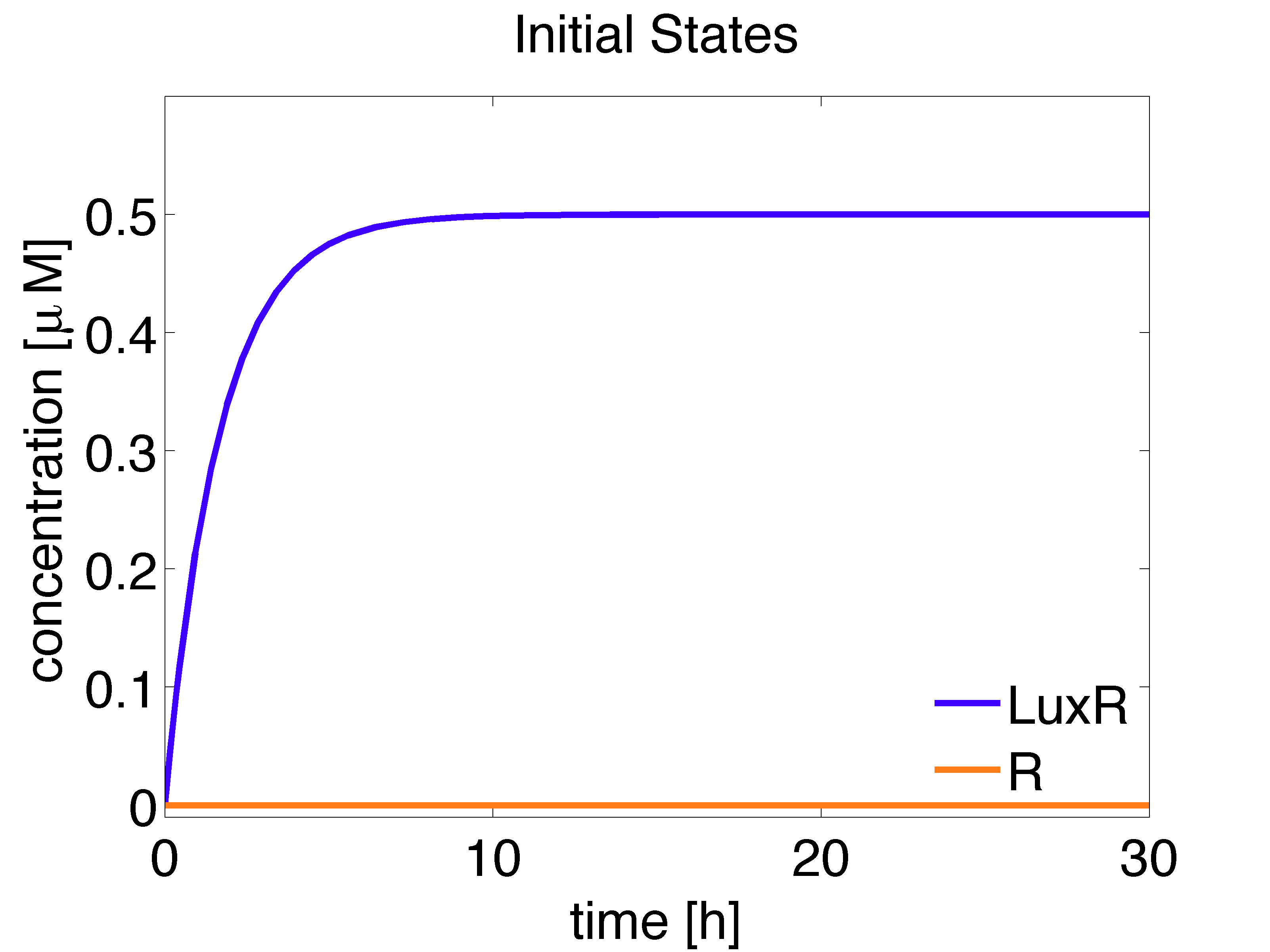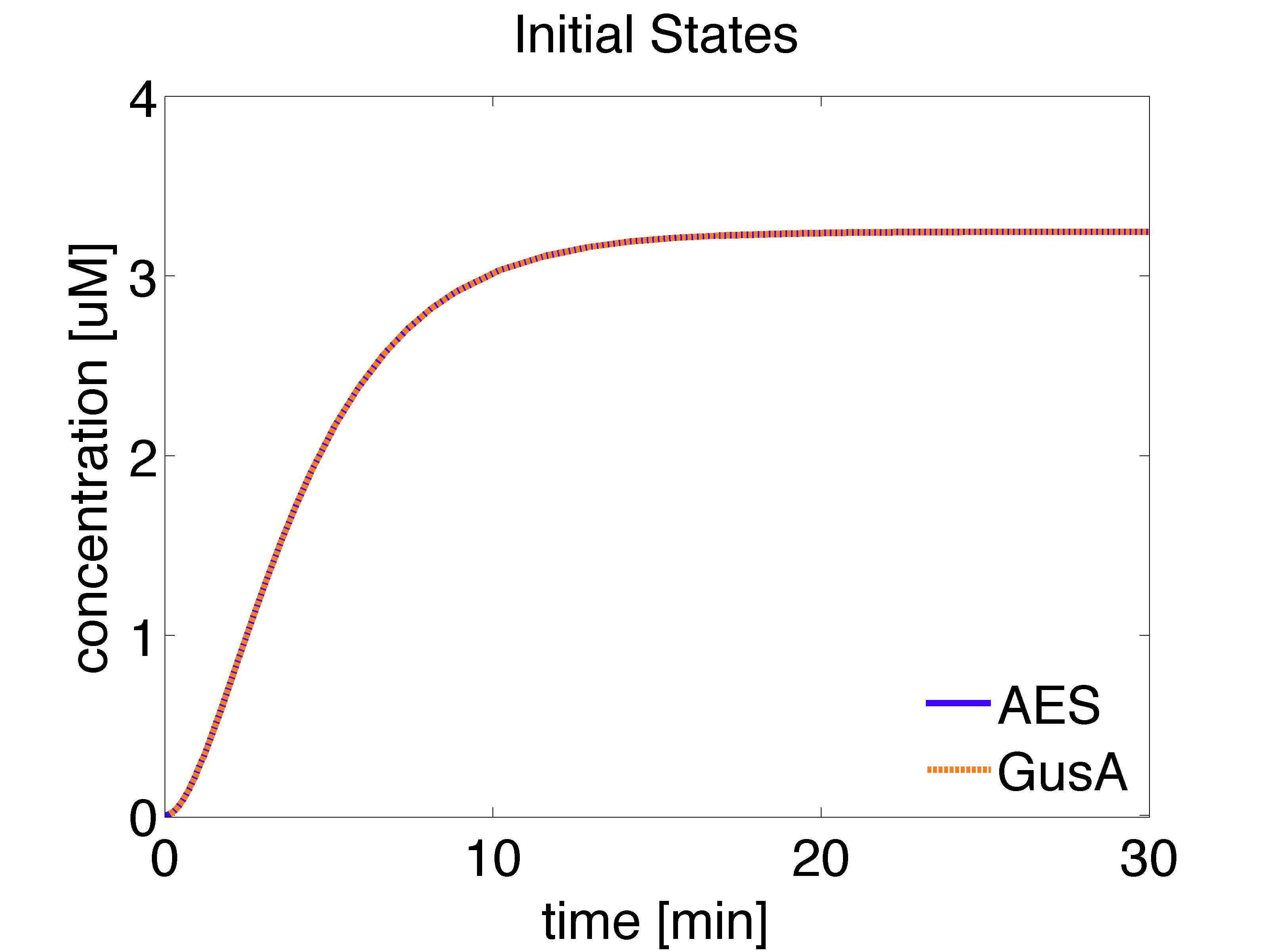Team:ETH Zurich/Modeling/InitialStates
From 2013.igem.org
(Difference between revisions)
| Line 6: | Line 6: | ||
<h1> Initial state for the Mine Cells </h1> | <h1> Initial state for the Mine Cells </h1> | ||
| - | [[File:InitialConMine.png|800px|center|thumb|<b>Figure 1:</b> Steady state concentrations | + | [[File:InitialConMine.png|800px|center|thumb|<b>Figure 1:</b> Steady state concentrations for Mine Cells]] |
| + | <br clear="all"/> | ||
| + | |||
| + | <h1> Initial state for the Receiver Cells </h1> | ||
| + | |||
| + | {|style="border: none;" align="center" | ||
| + | |valign="top"|[[File:InitialConReceiver.png|500px|center|thumb|<b>Figure 2:</b> Steady state concentrations for Receiver Cells.]]] | ||
| + | |valign="top"|[[File:InitialConReceiver2.png|500px|center|thumb|<b>Figure 3:</b> Steady state concentrations for Receiver Cells]]] | ||
| + | |} | ||
| + | |||
<br clear="all"/> | <br clear="all"/> | ||
Revision as of 16:49, 3 October 2013
INITIAL STATES
Is important to obtain the steady state concentration of some of the species in our circuit, since these values can be used as biologically meaningful initial conditions for subsequent simulations. When cells are placed on the agar plate, they come from an overnight liquid culture, thus we are assuming that the cells have reached the steady state. Should be noted that when the receiver cells grow, there is not OHHL in the medium and this affects the concentrations of intracellular species whose production depends on it.
Initial state for the Mine Cells
Initial state for the Receiver Cells
| ] | ] |
 "
"




